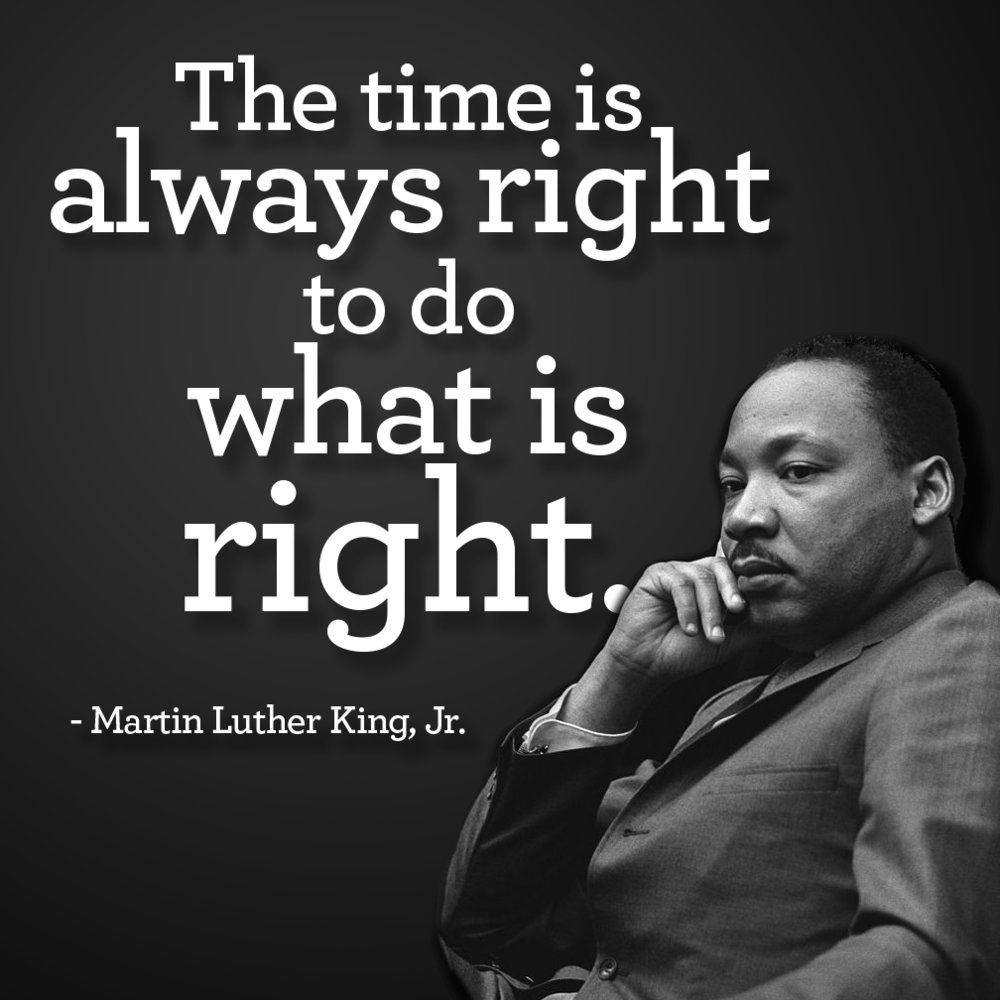
Many of us take the time to remember MLK Jr. We know of his “I Had a Dream” speech”, his promotion of non-violence. But do we really understand all that he stood for? People know MLK, he inspires people. As a result of being a famous figure, his presence tends to be white-washed, erasing his history, his ideals and his achievements. To really honor him on his day, it’s important to know what he believes, and how we should practice it. His words alone can teach us how we can truly be an activist, an ally and an advocate for change.
On MLK Day this year, I participated in his annual day of service, through George Washington University.
The keynote speaker, Zinhle Essamuah, a GW alum and reporter at NowThis for the Know This daily newsletter, which covers the top stories of the day, shared MLK’s three evils of the world. The evil of racism, the evil of poverty, and the evil of war.
King says: “The triple evils of racism, economic exploitation, and militarism. The great problem and the great challenge facing mankind today is to get rid of war … We have left ourselves as a nation morally and politically isolated in the world. We have greatly strengthened the forces of reaction in America, and excited violence and hatred among our own people. We have diverted attention from civil rights. During a period of war, when a nation becomes obsessed with the guns of war, social programs inevitably suffer. People become insensitive to pain and agony in their own midst …”
This speech was made in 1967, but of course, the words still ring true. We can all reflect on these evils and make connections to today’s world, and the recent events in the last month. What else can we do? We can go beyond just quoting his words, words that maybe resonate with us or that we connect to. That’s not enough. It’s also not serving anyone, especially not MLK.
His daughter, Bernice King said: What are you doing to become the dream that Martin spoke about? How are you using your voice to spread a message of peace, love and compassion? How are you using your wisdom to educate others about racism and injustice? How are you using your privilege and power to stand up for others? Dr. Martin Luther King Jr. has left his legacy. What will you do to leave yours?”
So here is what we need to do, for black people:
1. LISTEN TO THEM. When they share about their experience, listen to understand it, and avoid being defensive. When a facebook friend shared an article relating to the #LiteMLK, or the whitewashing of MLK day, I read it. Maybe a few years ago, I would have brushed it off. But I looked into it, taking the time to truly understand the my impact as a white person, and now I’m sharing it with you.
2. Use our privilege and our voice to challenge racism, to advocate for change to our decision makers, to educate others about the important issues. It’s not a person of color’s job to do this. It’s the allies. They experience enough hate, they have to fight to be recognized, acknowledged, and given opportunity that is handed to many of us, every single day.
3. Ensure your voice is heard. It can take many forms. It can start as reading an article every day, or engaging in conversation with someone about your knowledge, or seek their knowledge. Join a social change group. A national group you can join is Showing Up For Racial Justice, but I encourage you to look for local groups in your area as well to make even more tangible, direct change in your state or city.
4. Make mistakes. We all are going to have moments where we say or do something that isn’t politically correct, offensive or unjust for people of color or other marginalized groups or issues. Allow yourself to be called out, and change yourself. You can apologize, but continue to change after that.
I leave you with this quote:


